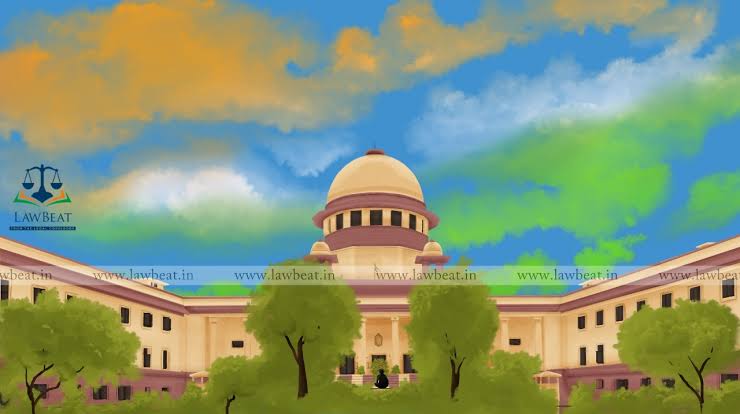Supreme Court Reserves Order In The Plea Challenging Constitutionality Of West Bengal Housing Industry Regulatory Authority Act

The Top Court reserves order in the plea challenging constitutional validity of the WB Housing Industry Regulatory Authority Act, 2017 on the grounds of repugnancy with the Real Estate (Regulation and Development) Act, 2016.
A Division Bench of Justice DY Chandrachud and Justice MR Shah, heard the closing remarks of the Counsel(s) appearing in the matter.
Justice Chandrachud made a very interesting remark on the working of the two legislation in a similar field; “Can the State, under the concurrent list, under cooperative federalism, operate in the same field as the Parliament, and not invoke Article 254?”
Advocate Justine George appeared for the petitioners; referred Justice Sanjiv Khanna judgment in Franklin Templeton, (2021) SCC OnLine SC 88, Para 18 and 19 to submit the scope of “counter mischief” and “parallel regime” by enacting a State Law.
Reliance was further placed on National Insurance judgment of 2012 to interpret “in addition to, and not in derogation of, the provisions of any other law for the time being in force” as occurring under Section 88, RERA.
Senior Advocate Mr. Rakesh Dwivedi made a brief submission that there may be an identity between the two enactments but there is no “parallel regime” as submitted by the learned counsel for the petitioners.
Further, it was informed by the Senior Counsel that the Central Act itself allows such identity by enacting the provisions of Section 88 and 89 under RERA.
Another crucial aspect acknowledged by the bench was that of the funds.
Justice Chandrachud, while his courtroom exchanges with Justice Shah, also pointed out the interplay of Article 256 and 257, and how the State by once entering into a field where there is a Parliamentary legislation can/cannot make the requisite rules and further restrict any executive interference by the Centre therein.
Earlier, Learned ASG Ms. Bhati had made submissions on the various tests of repugnancy as laid down by Justice Nariman in Innoventive Industries v. icici, (2018) 1 SCC 407 and each of them being independently applicable in the present case.
It was also added that RERA was brought to ensure standardization, symmetry of information, uniformity in the Real Estate sector, however, by enacting a parallel mechanism under WB HIRA, State of West Bengal has defied the objectives of the Central Act.
Senior Counsel Mr. Rakesh Dwivedi concluded his submissions by making the following two arguments;
- The idea of repugnancy implies an irreconcilable conflict and in the absence of conflict (as in the present case), the State law cannot be said repugnant, more so when Central law is completely hinged on the executive power of the State Government.
- Even in the absence of Section 88 and 89, the Parliament cannot cover the field exhaustively; the State must have power to compliment and supplement.
FPCE in their plea have prayed for passing an order declaring West Bengal Housing Industry Regulation Act, 2017, ultra vires the provisions of the Constitution of India and consequently issue appropriate writ or direction in the nature of mandamus, directing the State of West Bengal to not enforce the provisions of the West Bengal Housing Industry Regulation Act, 2017 within the State.
Case Title: Forum for Peoples Collective Efforts (FPCE) v. The State Of West Bengal | WP (C) No. 116/2019
